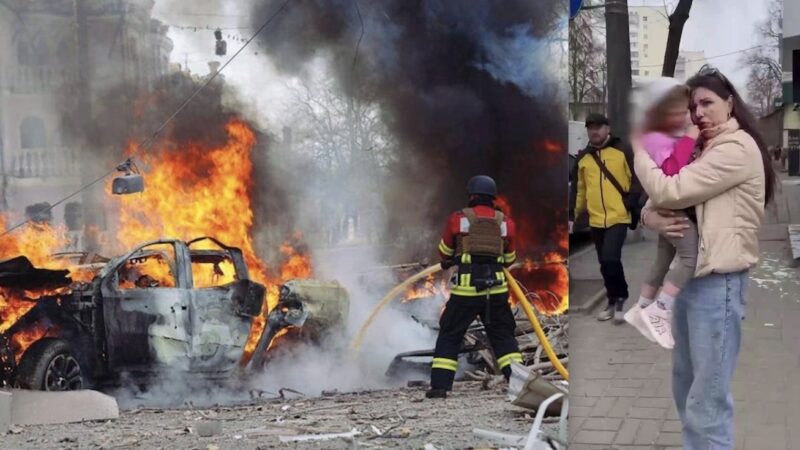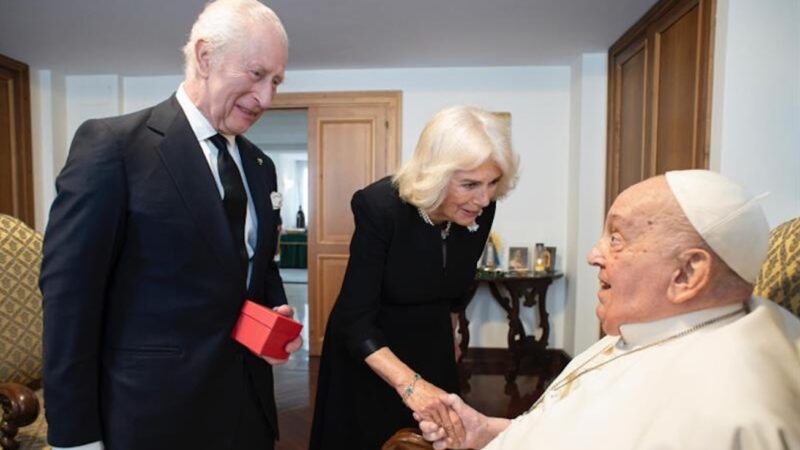MISSING and KILLED WOMEN still without Names DOUBLED IN EUROPE. Interpol asks for help with 46 Cold Cases
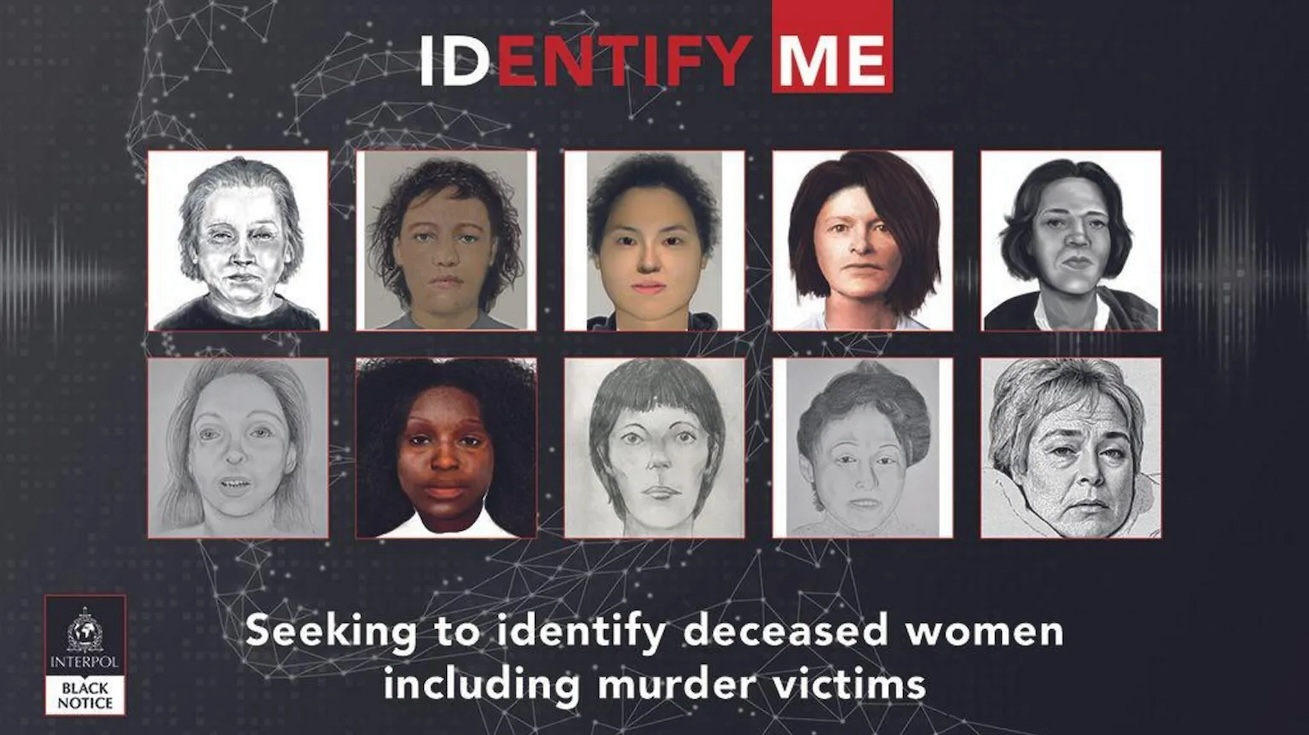
by Gospa News Editorial Staff
«Six European countries and INTERPOL have joined forces to solve 46 cold cases involving unidentified women whose remains were found across Europe years ago. Most of the women were either murdered or had died in suspicious or unexplained circumstances. Some of the cases date from decades ago».
This is the latest statement published by the official website of International Criminal Police Organization.
Cold Cases Doubled in Europe
The initiative builds on the success of the Identify Me appeal launched in May 2023 to identify 22 deceased women, with some 1,800 tips received from the public. It has now been expanded to include additional cold cases from Belgium, Germany, and the Netherlands, as well as cases from new participating countries France, Italy, and Spain.
Since Interpol launched this appeal the cases have doubled from 22 to 46, on average involving young people between 15 and 30 years old.
The appeal highlights the importance of public involvement and international cooperation in solving cold cases. It provides hope that crucial leads can be generated, so more of these women can be identified and that justice is served if murder has been established.
Identify Me has already seen noteworthy results after a case was solved after 31 years. Within two days of the launch of the first phase of Identify Me on 10 May 2023, relatives of Rita Roberts in the United Kingdom contacted the appeal hotline after they recognized their relative’s tattoo from news coverage.
“Identify Me” unveiled the name of British Woman Murdered after 31 years
Rita Roberts was 31 when she left Cardiff, Wales in February 1992. Her family last heard from her in May 1992, and her unidentified body was discovered in Antwerp on 3 June 1992. An investigation determined that she was a victim of murder. That case remains part of the international effort to request information, identify and seek justice for these deceased women.
“Our goal in the Identify Me campaign is simple. We want to identify the deceased women, bring answers to families, and deliver justice to the victims. But we can’t do it alone. That is why we are appealing to the public to join us in this effort. Their help could make the difference” INTERPOL Secretary General Jürgen Stock said.
“Even the smallest piece of information can be vital in helping solve these cold cases. Whether it is a memory, a tip, or a shared story, the smallest detail could help uncover the truth. The public could be the key to unlocking a name, a past, and in delivering long-overdue justice.”
Celebrity ambassadors in Eu countries
The appeal features the strong support – including in the video below – of the following leading actresses, singers, and sports figures from the participating countries, to help raise awareness of the cold cases and encourage public involvement:
- Belgium: Veerle Baetens and Axelle Red
- France: Marie-José Pérec and Sarah Biasini
- Germany: Regina Halmich and Katrin Müller-Hohenstein
- Italy: Carolina Kostner and Alice Bellandi
- Netherlands: Carice van Houten and Stien den Hollander
- Spain: Luisa Martin and Mabel Lozano
Interpol asks public to help crack new missing women cases
Originally published by Anna Holligan on the BBC
All links to previous Gospa News articles have been added in the aftermath
A pair of red shoes, two beaded necklaces and a British 10p coin are among the few clues that could help to identify a teenage girl found murdered in western France more than 40 years ago.
Her death is one of 46 cold cases European police are seeking to solve as part of the second phase of a campaign aimed at finding the names of unidentified murdered women.
BBC coverage of last year’s appeal helped to identify a British woman some 30 years after her murder.
“We want to identify the deceased women, bring answers to families, and deliver justice to the victims,” Jürgen Stock, secretary-general of Interpol, which is co-ordinating the effort, said in a statement on Tuesday.
“Whether it is a memory, a tip, or a shared story, the smallest detail could help uncover the truth.”
The second phase of the Operation Identify Me campaign includes cases in the Netherlands, Germany, Belgium, France, Italy and Spain.

Details of each one have been published on Interpol’s website, along with photographs of possible identifying items and facial reconstructions.
Most of the victims are thought to have been aged between 15 and 30.
The body of the teenager with red shoes, beaded necklaces and a 10p piece was found underneath layers of leaves in a layby near a village called Le Cellier in 1982. It had been there for several months.
Speaking near the area she was found, now overgrown with brambles, nettles and horse chestnut trees, detective Franc Dannerolle says the teenager’s body was “disposed of like garbage”.
Almost 100 arrests in Global Child Sexual Abuse Probe after two FBI agents were Killed
“There was no respect, no care for her before her death,” he adds.
The 10p coin led investigators to believe that she was either British or had been travelling in Britain before her murder, though they acknowledge that she could have found it, or been given it.
Police have chosen not to go into detail about the nature of her killing to avoid “fake perpetrators” from claiming responsibility.
Unfortunately, the teenager’s remains can no longer be found, which complicates the cold case investigators’ task.
“If we manage to find them, it could be possible to work on her DNA to have a link with the family,” says Det Dannerolle.
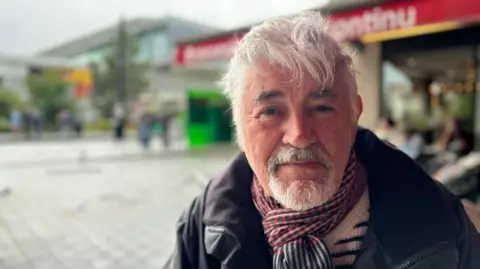
Retired detective Alain Brillet worked on the case at the time and describes it as a “triple enigma”.
“The strangest and most incredible thing was that we had someone who had been murdered, because we knew she had been murdered, but we could never find out what her name was, where she was from, or who had killed her,” he says.
The BBC found one woman who recalled the fear the discovery of her body sparked in the village, but because the victim wasn’t local, most people forgot about it and moved on.
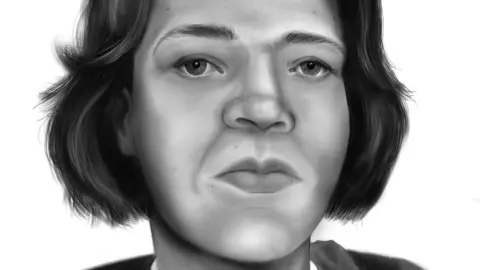 Interpol
InterpolThe launch of the Operation Identify Me campaign last year marked the first time that Interpol had ever gone public with a list known as “black notices”, seeking information about unidentified bodies. Such notices had historically only been circulated internally among Interpol’s network of police forces.
Across Europe, the ease of movement due to open borders, increased global migration, and human trafficking has led to more people being reported missing outside their home country, says Dr Susan Hitchin, co-ordinator of Interpol’s DNA unit.
“These women have suffered a double injustice. They’ve become victims twice: they’ve been killed through an act of violence and they’ve been denied their name in death,” she says.
Interpol is using targeted social media to advertise the campaign in specific locations and demographics. The global police force has also been asking celebrities to speak on behalf of the unknown, unnamed women.
Another case that Interpol is hoping people may be able to help solve is that of a woman whose body was discovered in Wassenaar in the Netherlands some two decades ago.
The discovery was Dutch forensic investigator Sandra Baasbank’s first case. She remembers seeing the woman lying face down in sand dunes, with no obvious signs of injury or struggle.
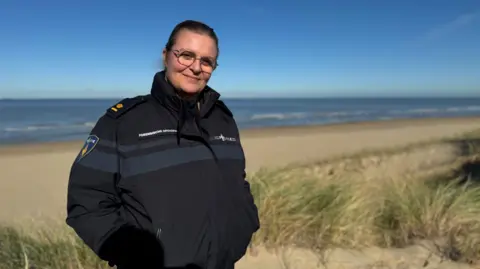
Det Baasbank says the woman was wearing brown plaid leggings and red shiny patent shoes – “unusual if you are going for a walk on the beach”.
“She was very fit, sporty. Wearing a headband, and sunglasses. Her buttons were done up and she was wearing a scarf,” the detective adds.
Forensic analysis found the woman was born in Eastern Europe and spent the final five years of her life in Western Europe. One of the keys she was carrying was traced back to Germany.
“Maybe she made me better at what I do. ‘Never give up,’ is my motto. I’m determined in the work I do, and maybe she’s the reason why,” Det Baasbank says.
She is hopeful that the new Identify Me campaign will help ignite some new leads and provide a form of closure. And there is reason for her optimism.
Originally published by Anna Holligan on the BBC
RELATE TOPICS
4thousand Toddlers Raped. Chilling Report by Italian Priest who Helps Police in Pedophiles’ Hunting

